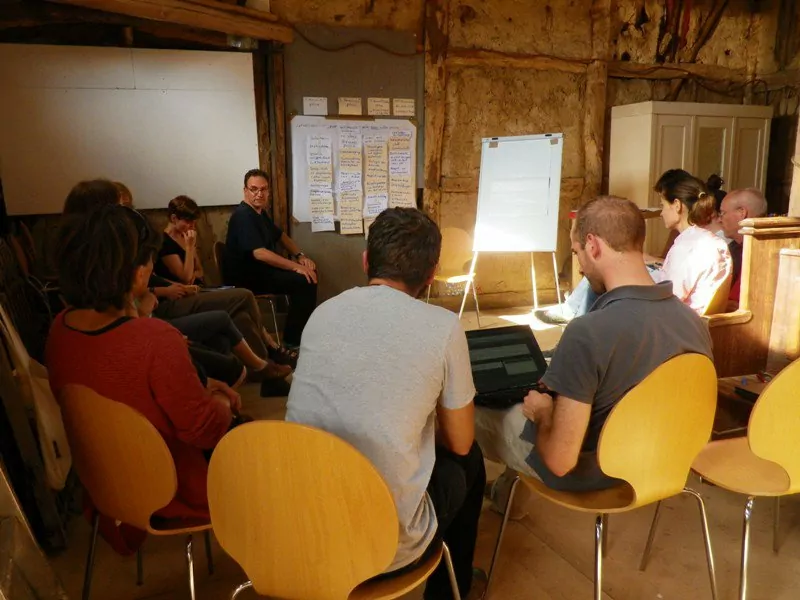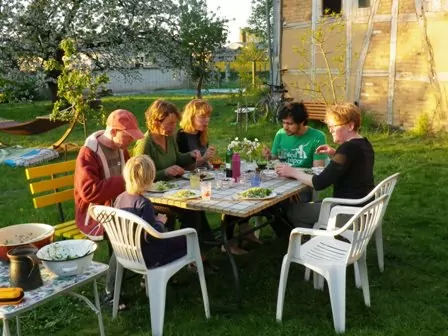Internationale Aktivitäten
Berichte aus Osteuropa
Opening Minds and Memorials
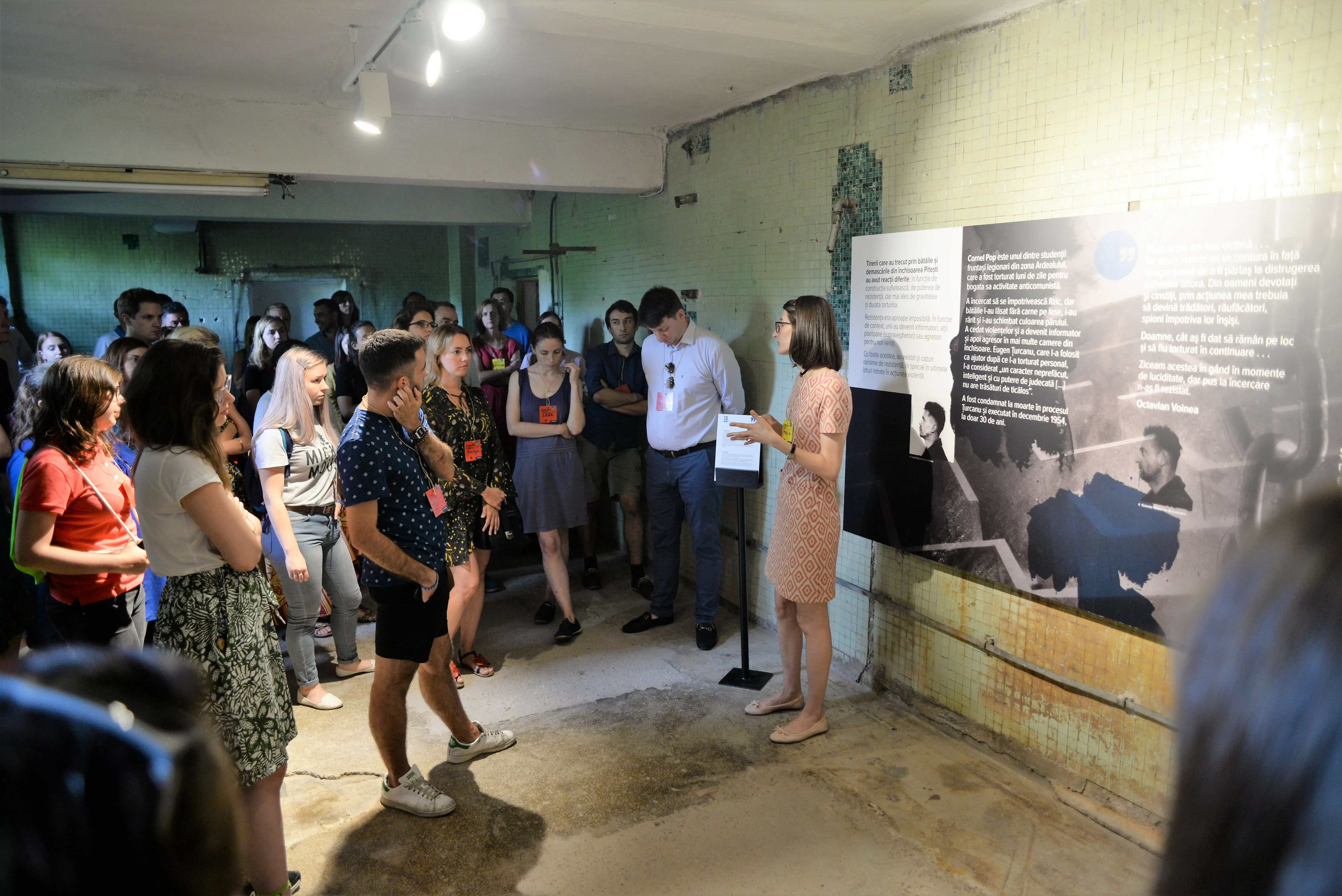
WECHANGE at EuropeLab 2018 in Piteşti
For the second year, WECHANGE is at EuropeLab, a forum for young professionals from the EU and Russia. Run by the organisation EU-Russia Civil Society Forum, EuropeLab always takes place in significant places of historical memory. This year, it is in the city of Piteşti, Romania. “You can call me the Prison Director” jokes Maria Axinte as she welcomes this year’s EuropeLab participants to the Piteşti Prison Memorial. In reality, she is the Director of the Memorial and Museum, one of only two in all of Romania commemorating the memory of prison camps in the original prison building themselves. Nowadays, the Prison Memorial in Piteşti is a short walk from the city’s high street, nestled in amongst a supermarket and blocks of flats. But it was not always that way. Before the city grew to encompass the complex, this prison was on the outskirts of the city, out of sight of many. Built between 1937 and 1941, Piteşti Prison housed both common law detainees and political prisoners, specifically students. The prison’s notoriety derives from the re-education experiment that took place in the complex from 1949-1951. The imprisoned students were subjected to relentless physical, mental and spiritual torture with the aim of breaking their resistance. The only way to stop the torture? To become an aggressor and torture their fellow prisoners. It is to the memory of this chapter in Romania’s history that Axinte and her team at Piteşti Prison Memorial dedicate themselves. The museum and foundation opened in 2014, researching the history of anti-communist political detention and running educational and cultural projects. The museum actually only makes up part of the original prison complex, the other buildings serving as offices. There are no original objects in the museum, rather the exhibits tell the story of the space – the stories of those who endured the so-called “Piteşti phenomenon”. The stories told in the Prison Memorial are shocking and brutal. Yet there are stunning glimmers of humanity amongst stories of breakdown and abuse. One room of the exhibition is dedicated to the help some of the prisoners tried to give each other, such as sneaking a smile in the darkest moments. “You try not to tell the story as if they are victims, but rather as if they fought the system.” This by no means detracts from the brutality and shocking nature of the stories. On the contrary, it only strengthens their impact. What is it that keeps the team at Piteşti Prison Memorial motivated to keep exploring this traumatic past? “When you are part of the community, you have to do something. If you know more about the subject, you feel a responsibility. If you get to know these people who are survivors of this repression, then I think it also comes with some responsibility that you should not leave it there. Once you start, you go deeper, whether you want to or not. It becomes something that you have to do.” The Memorial has only been open since 2014 and Axinte has big plans for the museum. “I would like this place to be more interactive with the public so that people can get involved in the exhibition and shape it themselves. I would like this place to become more important for the local community. It seems when you’re close to something, you don’t really seem to consider it important, so I would like locals to be more open towards us, to come here more often and to see this place as part of their community. For them to make it their own.” EuropeLab runs this year 28-31 July with 60 participants from 12 different countries. WECHANGE is there for the whole event, documenting the forum and presenting the WECHANGE platform as a useful online tool for sustainable civil society cooperation.How to save Poland’s democracy
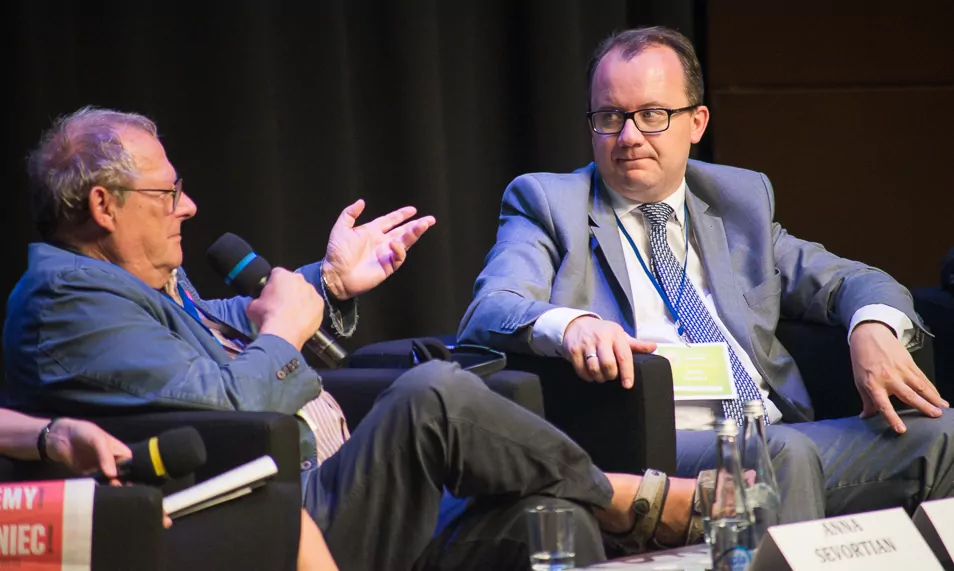
WECHANGE at EuropeLab 2017 in Gdansk
WECHANGE was in attendance at EuropeLab 2017 in Gdansk, where Adam Bodnar, the Polish Commissioner for Human Rights, held the opening speech. “These protests may change the future of Poland,” says the Polish Commissioner for Human Rights, Adam Bodnar, speaking this week in Gdansk at EuropeLab, an event organised by EU-Russia Civil Society Forum. During his keynote speech, he underlined the imminent threat facing democracy in Poland. Bodnar was speaking at the opening of EuropeLab, an event bringing together young, civically engaged professionals from the EU and Russia. The meeting is taking place at the European Solidarity Centre, the state-of-the-art museum and cultural centre that commemorates the revolution of Solidarity in Poland and promotes the democratic values embodied by the historical movement. “We can observe an elimination of checks and balances within the Polish constitutional system,” the Polish Commissioner for Human Rights argued. Bodnar was referring to the latest draft of legislation levied by the current Polish government, which sought to establish political control over the country’s judiciary. However, this is just the latest wave of sweeping reforms that the ruling Law and Justice party (PiS) has sought to implement, previously also targeting independent media and reproductive rights. Bodnar, who was first elected to his current position in September 2015, pointed to October of that year as the start of Poland’s “road towards illiberal democracy.” Since then, the government’s plans have been met with resistance from the population. In recent weeks, there have been protests in over 150 towns and cities across the country, with citizens voicing their outrage at the perceived assault on the rule of law and their civil liberties. These mass protests have already played a crucial role in hindering the government’s reform program, most recently leading to President Andrzej Duda to veto two of the three proposed justice reform bills. Bodnar, formerly of the Helsinki Foundation for Human Rights, argued that during the last few months, the climate in Polish civil society has changed. Protests in their various forms are becoming increasingly important and ever more diverse. Crucially, the demographic of the protest movements has begun to shift and, according to Bodnar, it is no longer just the middle-aged “40 plus” section of the population who are predominantly taking to the streets, but the younger generation is increasingly joining them too. A promising sign in Bodnar’s eyes. The Commissioner for Human Rights was keen to note that, whilst this was not planned, EuropeLab was taking place “at a very special moment in time for Polish history”. Bodnar was keen to emphasise the role civil society has to play in a successful democracy, not only by affecting change directly, but by setting a courageous example for those within legislative and governing bodies. Indeed, he ended his speech with a poignant call-to-action for all citizens, regardless of their nationality – “Keep the flame alive – you never know when your ideas will become important for the future of your country.” by Charlotte Bull and Enno Strudthoff photo by Nicolai Herzog More insights from the Europelab? Check https://wechange.de/group/europelab-2017/microsite/ including a Twitter-Feed with all the insights.Cooking in Siberia and Tanzania or sailing the Baltic Sea?
WECHANGE empowering non-formal education projects around the globe and not only!
A young international team will sail Kiel-Kaliningrad-Stockholm together in summer of 2017 and another group of young people just spent three weeks touring around in Tanzania in a mobile kitchen. When you hear about these kind of projects, you could already assume that this might have something to do with a NGO called INTERRA, located in Krasnoyarsk, in Russian Siberia. INTERRA focuses on cultural exchange, sustainable development and non-formal education. All different projects follow the conviction that educational and cultural cooperation is the key tool for transforming the society. INTERRA’s team consists of five employees, interns and EVS volunteers. One of their last projects – “Critical Kitchen” – studied the links between food supply and climate change with German and Tanzanian partners. The “study” took place – yes, you guessed correctly! – while touring around Tanzania in a mobile kitchen. Another project that definitely fulfills the criteria of non-formal education is the project “Veter i Volny” (Wind and Waves”) – a Russian-German adventure project where a young international team will sail Kiel-Kaliningrad-Stockholm together. So what has sailing the Baltic Sea in common with the online platform WECHANGE? INTERRA’s team uses the WECHANGE platform increasingly not only in different project management processes with international partners but also in its everyday work in their Krasnoyarsk office. Elena Bobrovskaya, the director of INTERRA, tells that due to numerous international projects of INTERRA, the team needs to travel a lot and thus the employees, interns and volunteers depend on a common platform for coordinating tasks and responsibilities. In their experience the platform is extremely helpful for giving overview to new team members and helping them to orientate within the ’jungle‘ of different tasks, deadlines, persons in charge and info material. It also enables the team to choose which information and files shall be accessible to whom and helps them to create (more) structure into their work. So here you go… Your project management on the WECHANGE platform might suddenly end up on a sailing boat in the Baltic Sea. Could be worse!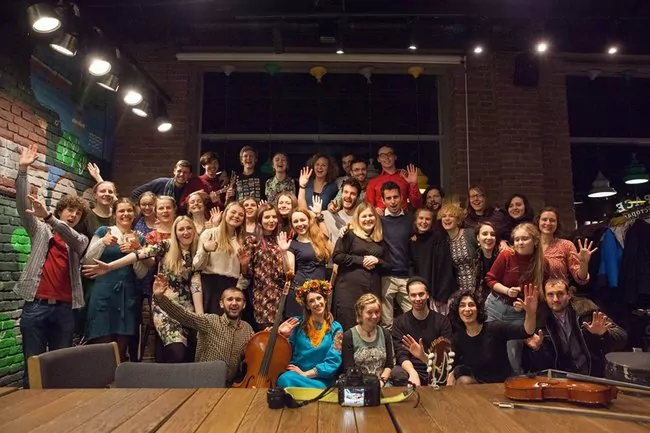
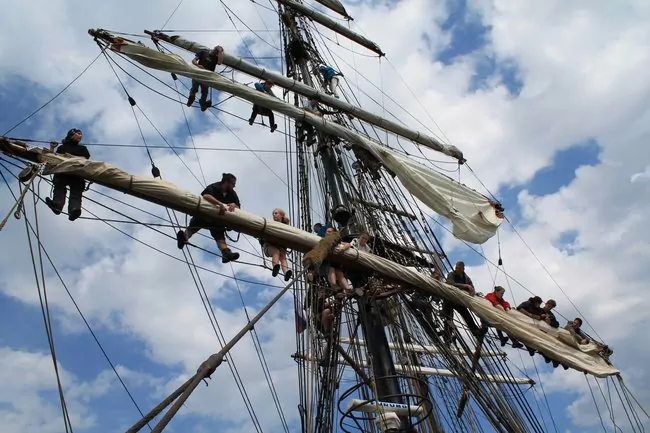
EcoVisio – greening and empowering Moldova
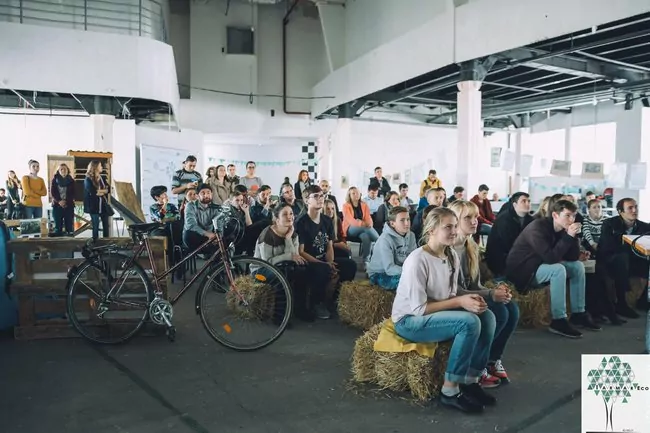
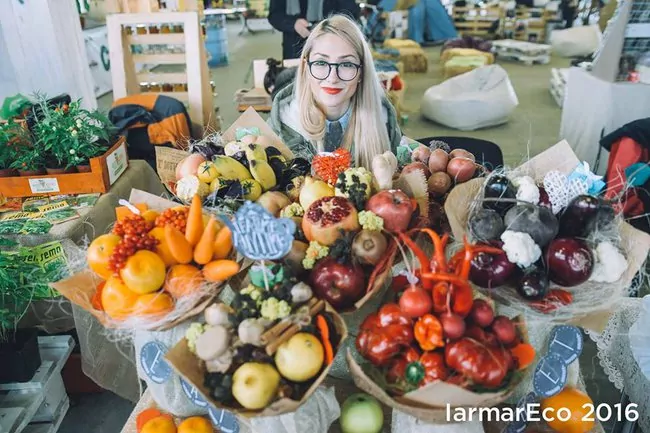
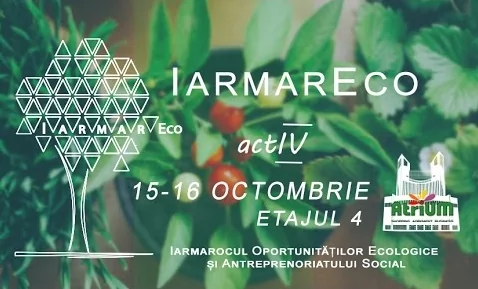
Fair of Ecological Opportunities and the first eco-village in Moldova
New bags out of recycled old fabrics, the Fair of Ecological Opportunities and Social Entrepreneurship or planting trees in a village Riscova? This kind of variety of projects can probably only be found in EcoVisio in Moldova. The vision of Moldova’s green, ecologically and socially sustainable future and its potential as a leading country for organic farming in the next decades is the common thread and motivation for various projects of EcoVisio. The interdisciplinary team of EcoVisio has 15 active team members and numerous volunteers and supporters that all carry the soul of this grassroots NGO. EcoVisio brings together different initiatives and active citizens and thus enables everybody to find their right spot in the wide range of EcoVisio’s projects: reaching from active citizenship and civic engagement to empowerment and environmental action. Some active members are right now in the process of establishing one of the first eco-villages in Moldova. Another intended project is the construction of EcoVisio’s Environmental Training Centre where fundraising campaigns have already started. Last – but not the least – is a beautiful and inspiring regional market IarmarEco – Fair of Ecological Opportunities and Social Entrepreneurship – which brings together organic food producers, consumers and interested eco-community from the whole region. This year IarmerEco took place for the 4th time. It had over 600 visitors and presented 75 local NGOs and entrepreneurs. For the first time it lasted two days: the first day was dedicated to educational workshops, presentations of participating initiatives as well as to networking and the second day for the fair itself. Julian Gröger, one of the co-founders of EcoVisio, is convinced that this kind of regional event which attracts the whole eco-community together once a year is extremely useful in Eastern Europe. This year IarmarEco also organized an additional eco-village stay after the market for 15 interested persons out of 10 countries. Participants discussed different opportunities on how to pursue social entrepreneurship in their regions and analyzed various ways of how to make the region profit more out of it. We cannot wait to hear more about Ecovisio’s projects and we hope they continue “greening” Moldova with the same motivation and passion as they have done so far!challenging the status quo in Northern Caucasus
New Horizons – Northern Caucasus as a birthplace for inspiring youth projects
You choose: either a computer course project for the 5-7th grade in a small Chechen village or a cultural centre project for people that do not know their own language in a Karachay village? Comics that fight existing stereotypes in Stavropol krai, Karachay-Cherkessia and Kabardino-Balkaria or a photo exhibition in Nalchik city about people with disabilities to confront the mainstream prejudices? Or last but not least – a forum theatre in a Vladicaucasto activate the citizens to stand up and suggest new alternatives for existing problems? These are only a few projects that stem from New Horizons. Never heard about it? Well, here you go… The project addresses different age groups from Russia’s Northern Caucasus region where it is essential to invest more into young people’s abilities in overcoming ethnical and religious boundaries. Northern Caucasus inhabitants are either Muslim or Orthodox and, in addition to that, mostly also mono-ethnic. People have been suffering under frozen conflicts since the beginning of the 1990s. New Horizons offers the youth of all these different regions a neutral ground for mutual coaching, project planning and implementation process. Additionally, New Horizons promotes intersectoral cooperation. In Russia, this is even more necessary due to the rather ambivalent legal status and image of NGOs. Within the project youth interested in volunteer activism received workshops on capacity building and project design and management. For improving their own project management New Horizons’ organizers use WECHANGE. The platform has been made accessible for citizens from Russian and Eastern Partnership countries thanks to the German Federal Foreign Office. Sophia Shakirova, one of the project coordinators, is convinced that the program contributes a lot to the regional development when promoting intercultural and interreligious dialogue as well as non-violent communication between young people of different age and of different regions. All wonderful ideas of the 2016 New Horizons‘ project applications received funding this year. We cannot wait for the future ideas and projects!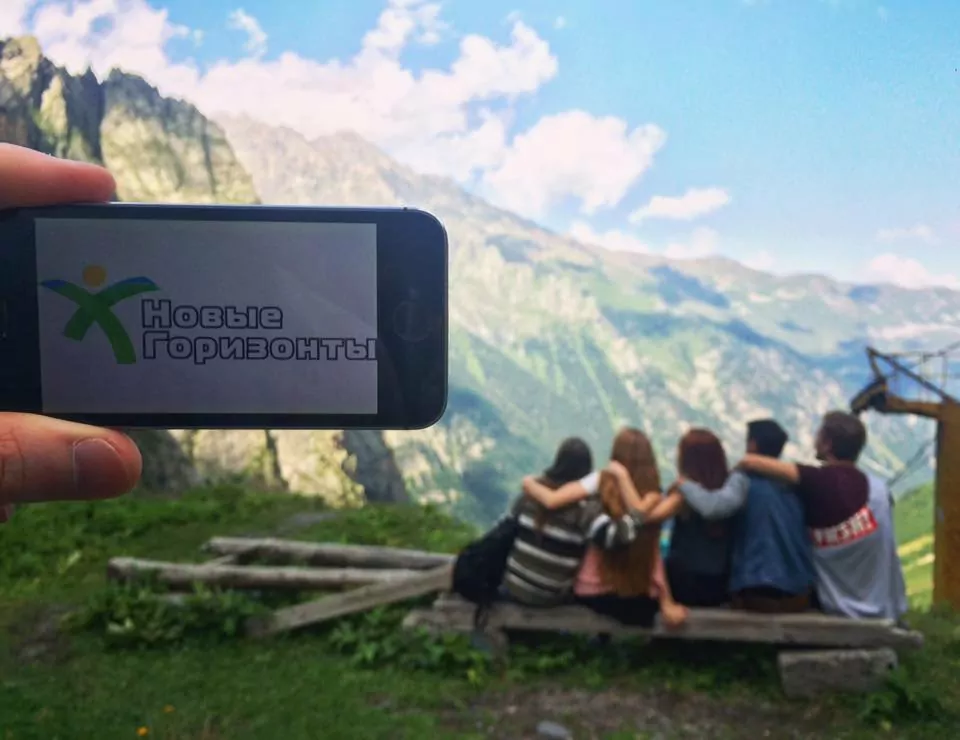
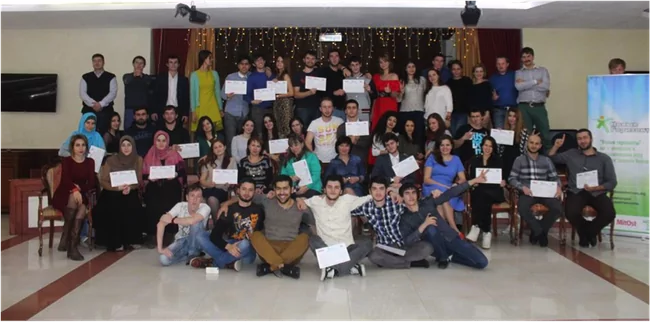
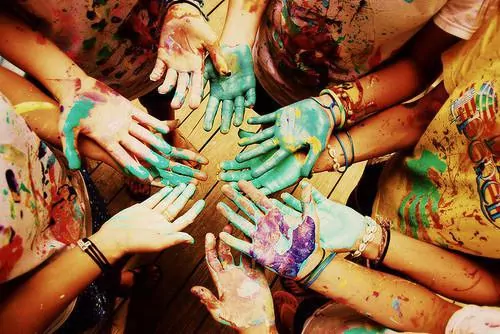
Akademie für Suffizienz
